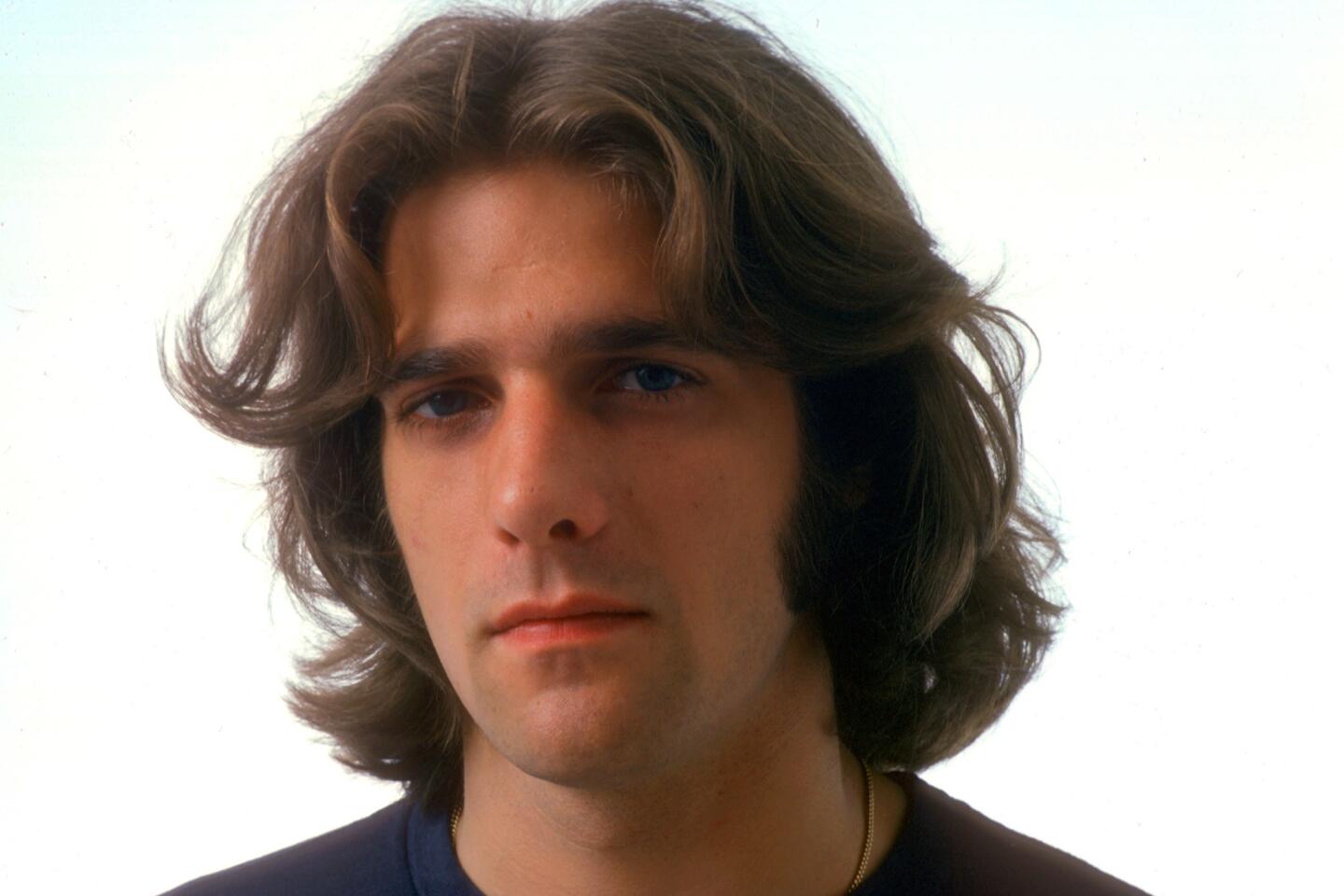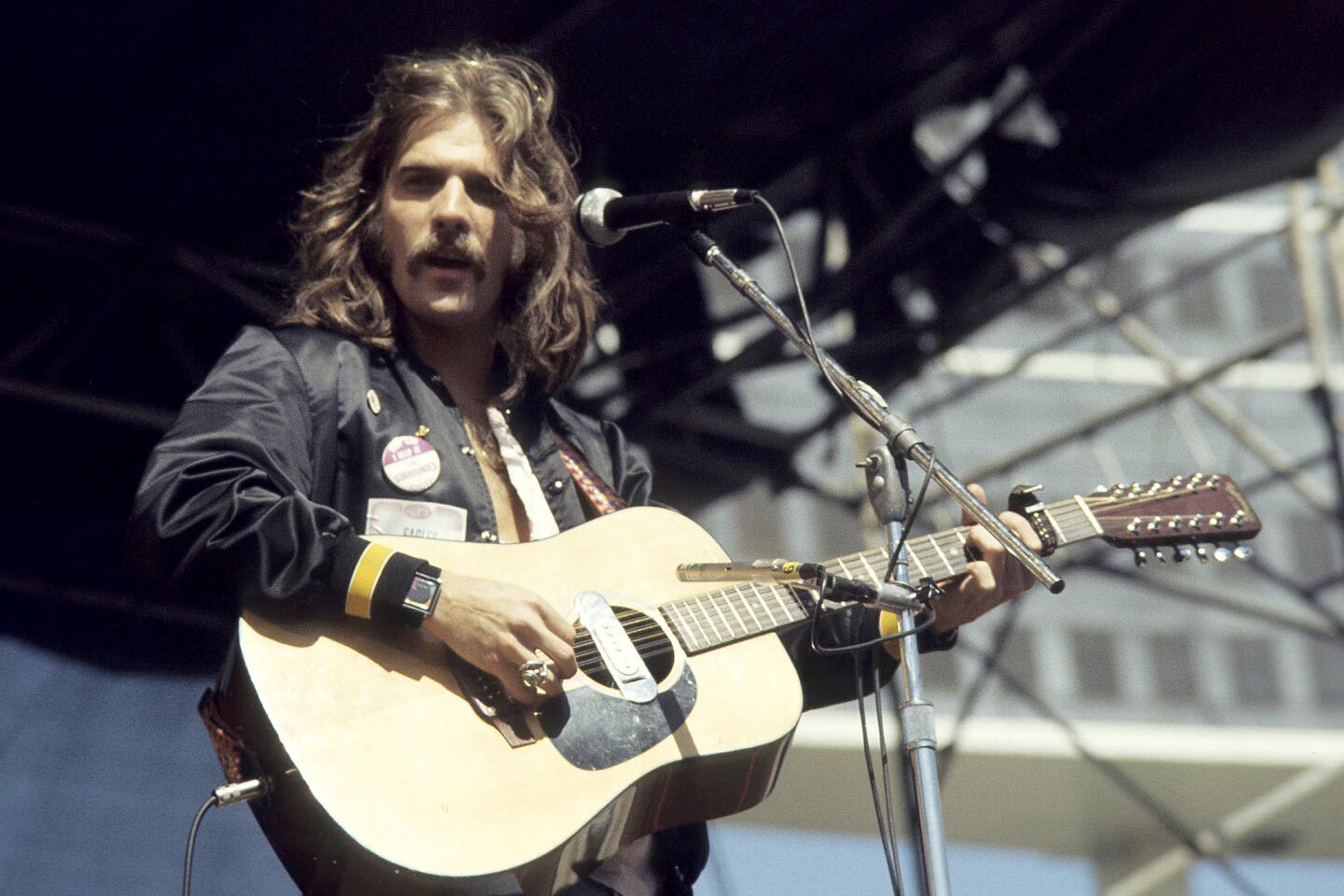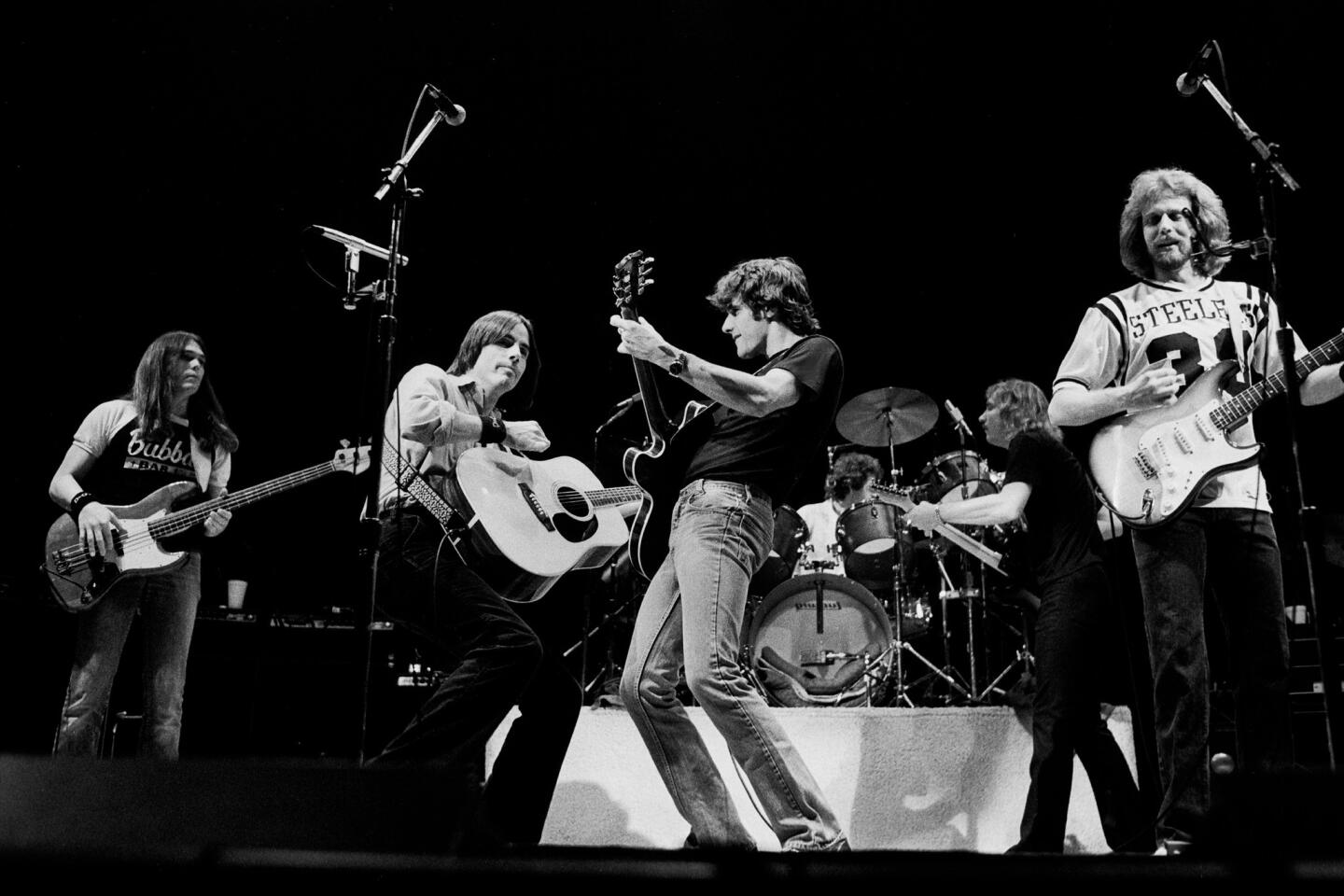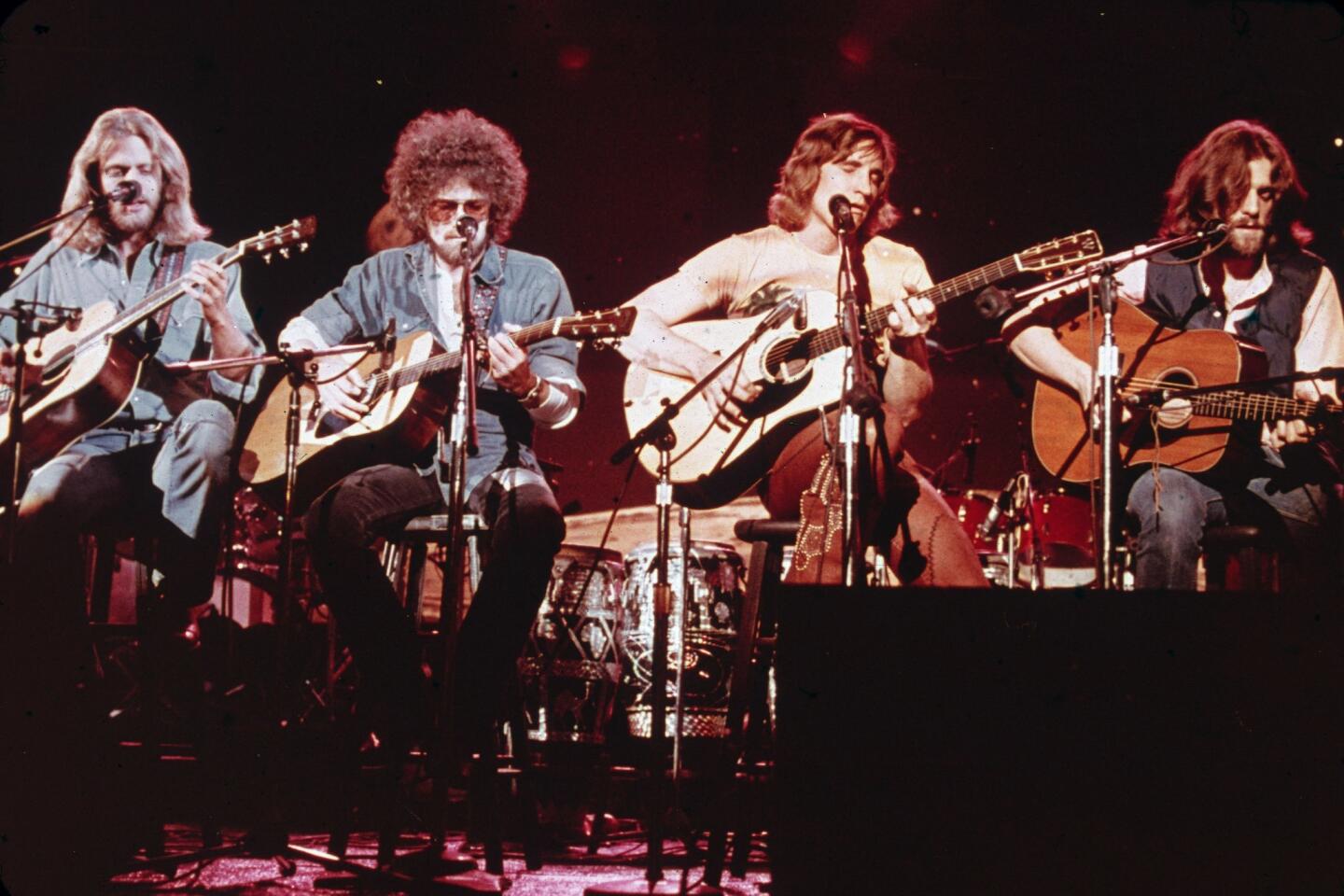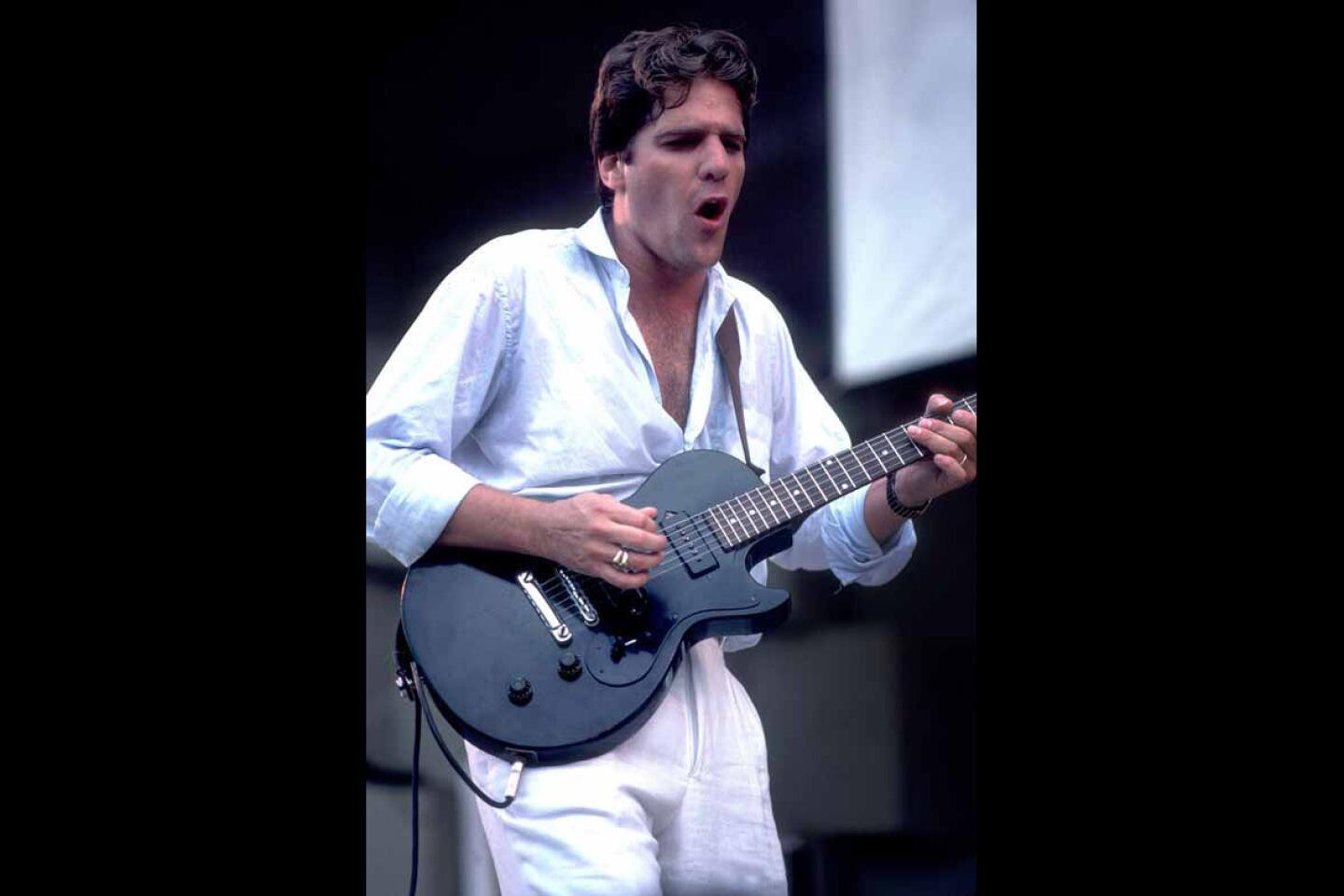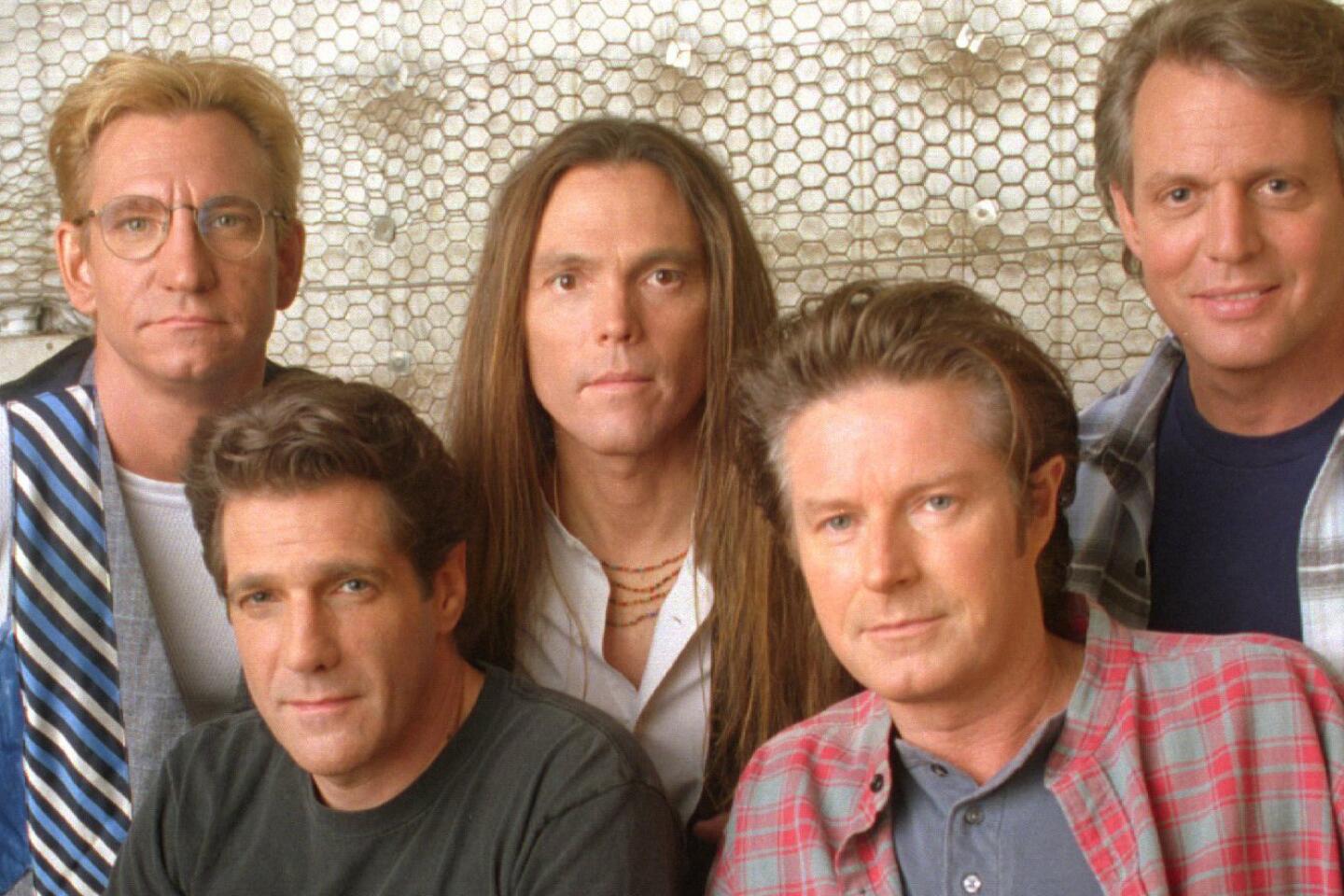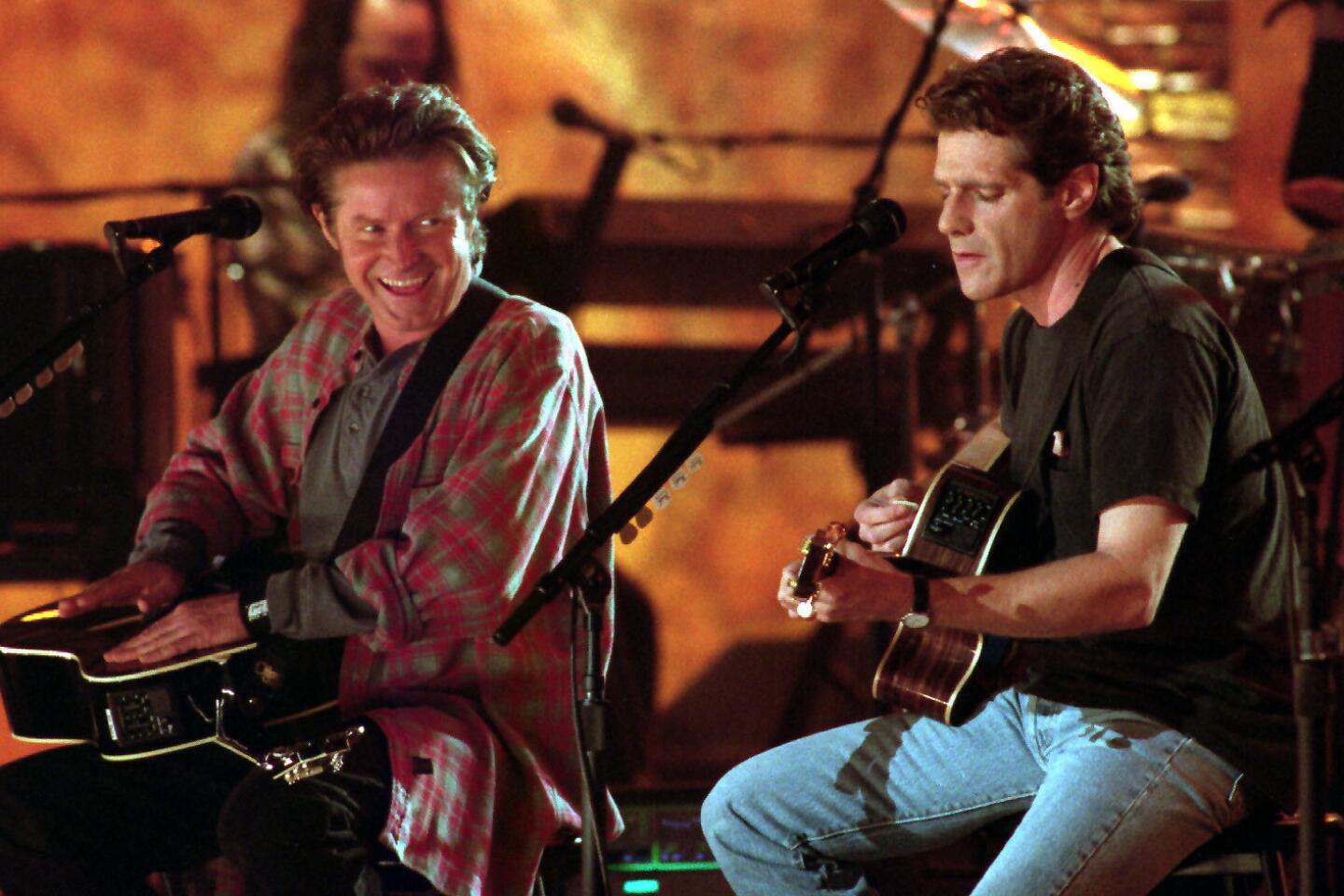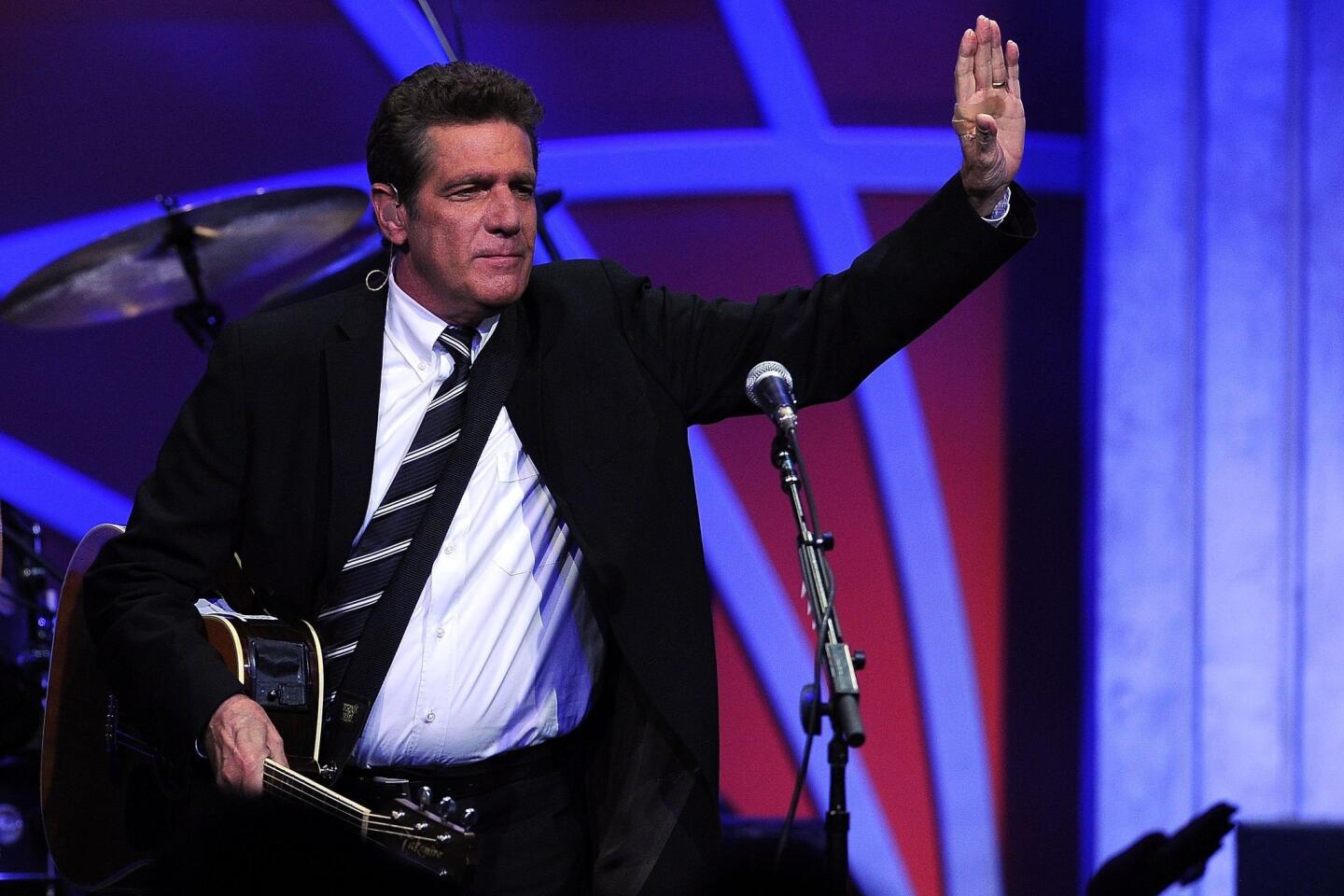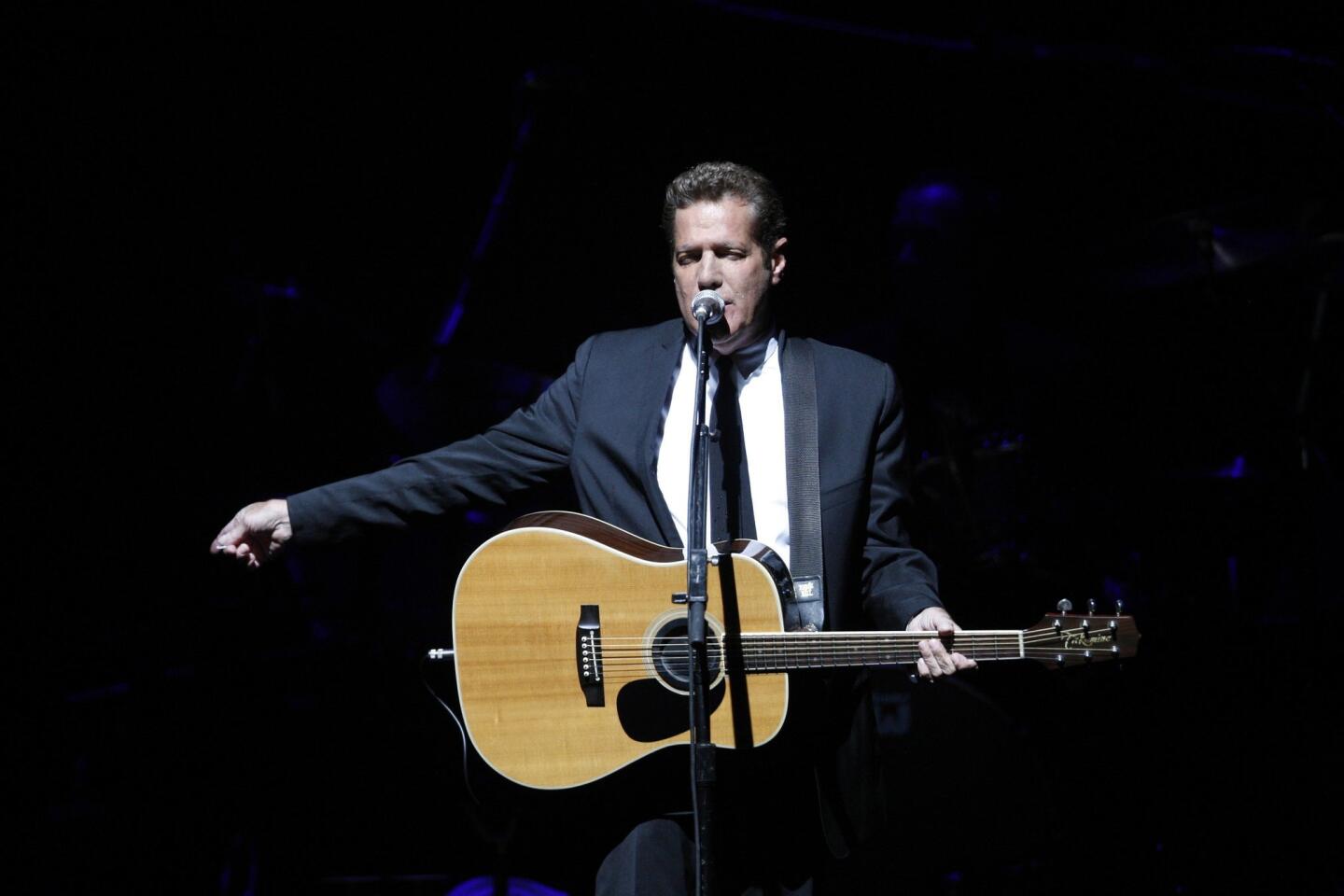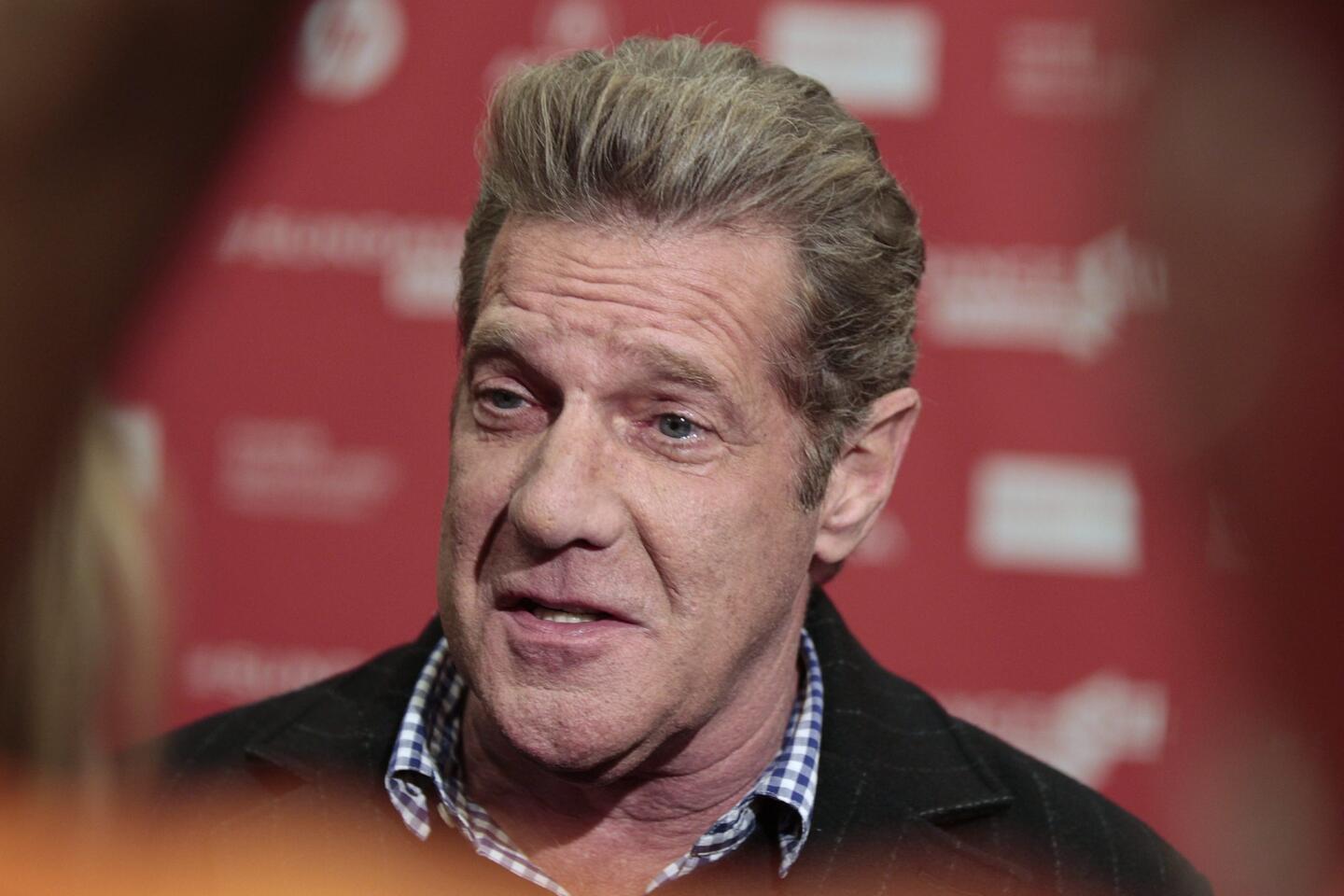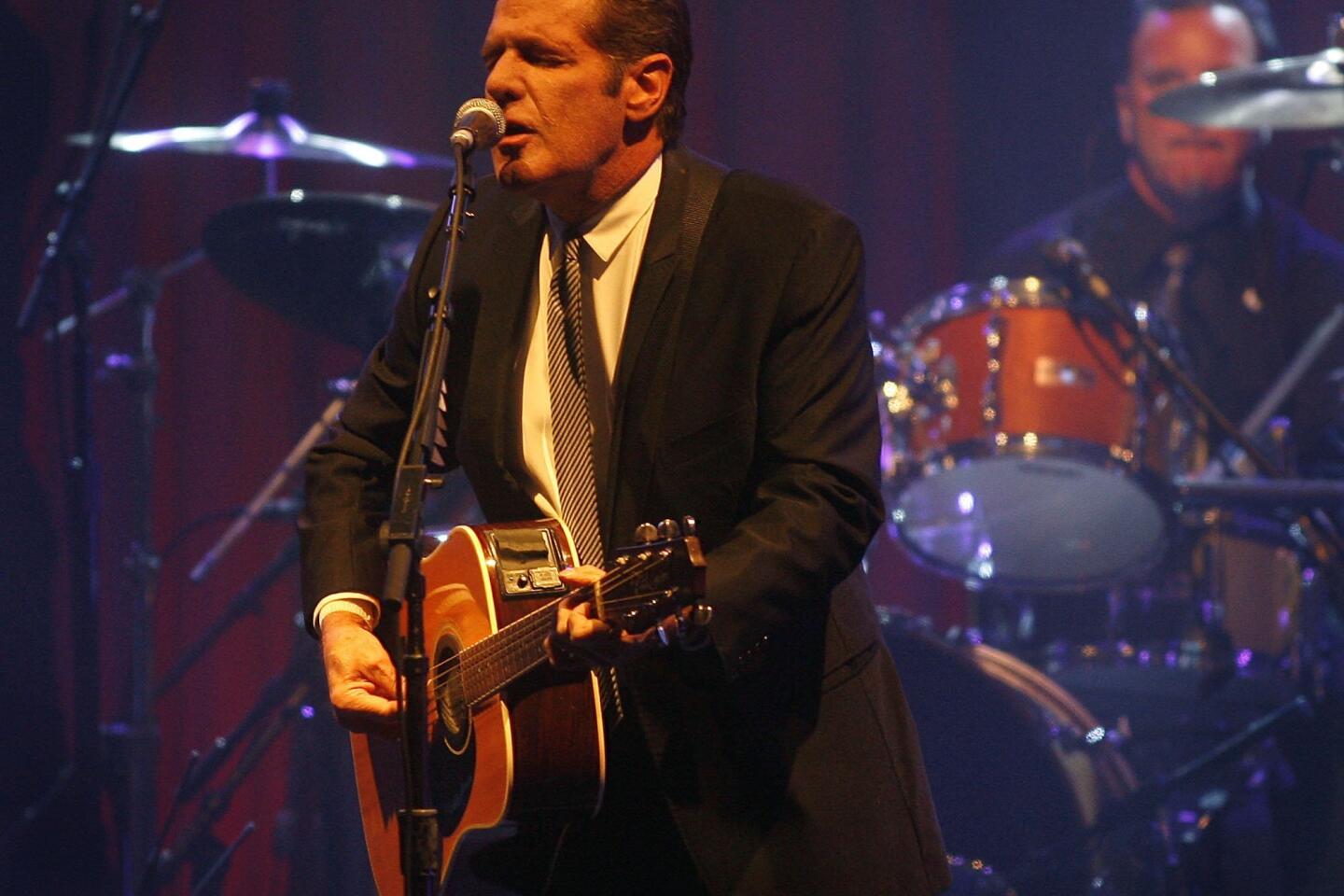In ‘After Hours,’ Glenn Frey’s unlikely goodbye carries a hidden slyness
- Share via
Few who followed the Eagles through the 1970s could’ve envisioned Glenn Frey coming to roost on “After Hours,” the singer and guitarist’s slick 2012 solo album of old-school vocal pop.
Not because rockers don’t do standards, of course: Rod Stewart and Paul McCartney dug through the Great American Songbook before the former Eagle did, and Bob Dylan and Annie Lennox went there after.
Indeed, it was Frey’s old pal Linda Ronstadt who set a template for this kind of thing 30 years ago with her extended (and super-successful) collaboration with the arranger Nelson Riddle.
See the most-read stories in Entertainment this hour >>
But beneath the Eagles’ famously sun-warmed sound ran a pretty cold-blooded view of romance and celebrity. And here was Frey, the guy who sang about “your lyin’ eyes” with more than a little recognition, crooning, “I love you for sentimental reasons,” over tinkling wine-bar piano.
The way the Eagles saw it, nobody did anything -- least of all love someone -- for sentimental reasons.

Glenn Frey - A collection of memorable songs.
So it seems safe to say that Frey, who died Monday at age 67, didn’t intend for “After Hours” to be his final artistic statement. He wasn’t reflecting on a life’s philosophy the way David Bowie appears to have been doing with his death-obsessed “Blackstar.”
In a way, though, that’s what’s sort of great -- and maybe a bit characteristic after all -- about the album.
For one thing, Frey’s light touch refreshes material that’s grown bogged down with the weight of endless interpretation -- tunes like “The Look of Love” and “The Shadow of Your Smile,” which Frey delivers with an appealing nonchalance, as though they’re ditties he just dashed off in an afternoon.
Even “Here’s to Life,” that potentially dramatic toast to the end of the road, becomes a lark in Frey’s hands.
Was he consciously undermining the big emotions in these songs? And was the album’s assembly-line production saying something about pop’s easy commodification (a very Eagles idea)?
When Frey spoke about the record to The Times in 2012, he suggested that its sound was his attempt to stave off the boredom of checking into “Hotel California” yet again.
Yet there’s a hidden slyness to these renditions that gives “After Hours” the feel of a killer set-up.
You keep waiting for the punch line, and now it’ll never come.
Twitter: @mikaelwood
More to Read
The biggest entertainment stories
Get our big stories about Hollywood, film, television, music, arts, culture and more right in your inbox as soon as they publish.
You may occasionally receive promotional content from the Los Angeles Times.

